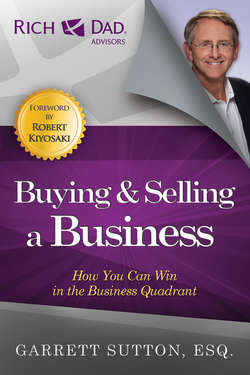Читать книгу Buying and Selling a Business - Garrett Sutton - Страница 12
На сайте Литреса книга снята с продажи.
Timing
ОглавлениеTiming is important whether buying or selling a business. The health of the overall economy, the state of the company’s specific industry, and the condition of the company all play into the decision-making process. The overall economy’s health may dictate the availability of loans while also coloring the perspective of potential buyers. Good economic times breed optimistic buyers. Optimistic buyers have rosier hopes for the future, and it is this future they are purchasing. The state of the target company’s industry and the health of the target business help define levels of perceived risk. Lower risk means higher prices, even if those risks are only in the eye of the beholder.
While buyers and sellers have no control over the health of the economy or even the state of the industry, assessing trends and perceptions will greatly influence their ability to be in the right place at the right time. The key ingredient to good luck is good planning.
Economic slumps may be good news for buyers. If buyers have the purchasing power (or better yet, the cash), there are usually bargains to be had during a recession. Of course, the risks are higher. After all, buyers are likely buying in the hopes of the economy turning around. Eventually it will, but weathering the storm can be an expensive proposition.
Economic booms may be good news for sellers. Optimism loosens purse strings. But higher purchase prices generally mean more debt for the buyer and if optimism turns out to be unfounded, carrying a company with significant debt and insufficient valuation may require a buyer to sell. A struggling company in a struggling economy is the worst of all situations for the seller.
Either way, in good economies or bad, buyers want to be sure they have enough money on hand to cover not only the purchase but also the initial slump that generally accompanies new ownership.
